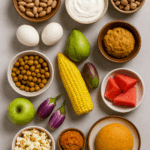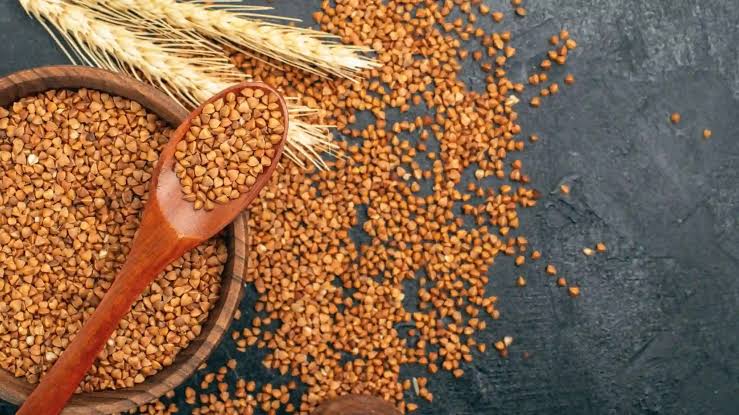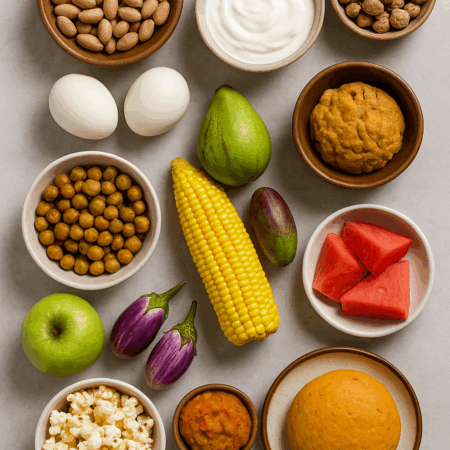20 Powerful Health Benefits of Millet – Why You Should Eat More of It
Millet is one of the most nutritious grains available in Nigeria, yet many people don’t realize its full potential. Known as Gero in Hausa, Okababa in Yoruba, and Dawa in Igbo, millet is commonly used to make local foods like fura, tuwo, kunu, and pap (akamu).
Beyond its role as a staple food, millet is a superfood packed with vitamins, minerals, and antioxidants that offer numerous health benefits. It can help control diabetes, improve digestion, support heart health, and boost energy levels.
If you are looking for a cheap, natural, and highly nutritious food that can improve your overall health, millet is a great choice. Below are 20 powerful health benefits of millet and why you should consider adding it to your diet.
1. Helps Control High Blood Pressure
High blood pressure (hypertension) is a serious health problem that increases the risk of stroke, heart attack, kidney failure, and other cardiovascular diseases. Millet is rich in magnesium and potassium, two essential minerals that help relax blood vessels, improve circulation, and lower blood pressure levels.
For people struggling with hypertension, replacing processed foods with millet can naturally help regulate blood pressure and support heart health.
2. Helps Regulate Blood Sugar and Prevent Diabetes
Diabetes is becoming more common due to diets high in processed foods and refined sugars. Millet has a low glycemic index (GI), meaning it does not cause a rapid increase in blood sugar levels. Instead, it helps control glucose levels and improve insulin sensitivity, making it a great food choice for diabetics or those at risk of diabetes.
Regular consumption of millet can prevent sugar spikes, reduce cravings for unhealthy foods, and support long-term blood sugar management.
3. Improves Digestion and Prevents Constipation
Poor digestion can lead to uncomfortable symptoms such as bloating, gas, stomach cramps, and constipation. Millet is rich in fiber, which helps food move smoothly through the digestive tract.
Eating millet regularly can help soften stool, improve bowel movement, and prevent constipation. It also helps in maintaining a healthy gut by feeding beneficial bacteria that support digestion.
4. Provides Long-Lasting Energy
Many people rely on sugary foods and energy drinks to stay active, but these only provide a temporary boost, followed by a sudden crash. Millet, on the other hand, contains complex carbohydrates that release energy slowly over time, keeping you energized throughout the day.
This makes millet an excellent food for students, office workers, and athletes who need sustained energy levels without frequent hunger pangs.
5. Supports Weight Loss and Healthy Body Weight
If you are trying to lose weight or maintain a healthy body size, millet is an excellent addition to your diet. It is low in calories but high in fiber and protein, which helps you feel full for longer.
Eating millet can reduce cravings for unhealthy snacks, prevent overeating, and support healthy metabolism, making weight management easier.
6. Strengthens Bones and Prevents Bone Diseases
Strong bones are essential for a healthy body, especially as you age. Millet contains calcium, phosphorus, and magnesium, which are crucial for bone development and maintenance.
Eating millet regularly can help prevent bone diseases like osteoporosis, fractures, and weak joints, particularly in children, pregnant women, and elderly individuals.
7. Boosts the Immune System and Prevents Infections
Your immune system is your body’s defense against illnesses, viruses, and infections. Millet is packed with essential nutrients like zinc, iron, and vitamin C, which help strengthen the immune system and fight off diseases.
If you frequently fall sick or feel weak, adding millet to your diet can help boost your immune response and keep your body strong against infections.
8. Reduces Bad Cholesterol and Supports Heart Health
High cholesterol is a major risk factor for heart disease, stroke, and clogged arteries. Millet contains healthy fats and soluble fiber, which help reduce bad cholesterol (LDL) while increasing good cholesterol (HDL).
Eating millet regularly can lower the risk of heart problems, improve circulation, and keep your arteries clear.
9. Prevents Anemia and Increases Blood Production
Anemia, also known as low blood, is a condition that leads to weakness, dizziness, fatigue, and pale skin. Millet is rich in iron and folic acid, two key nutrients that help increase red blood cell production and prevent anemia.
If you often feel tired or weak, eating millet can help improve your blood levels and boost your energy.
10. Reduces the Risk of Cancer
Millet contains powerful antioxidants, which help fight harmful substances in the body that can lead to cancer growth. Studies suggest that millet may reduce the risk of cancers such as breast, colon, and liver cancer by protecting cells from damage.
Eating millet regularly can help prevent oxidative stress and improve overall health.
11. Keeps Skin Healthy and Glowing
Your skin reflects your overall health. Millet is rich in vitamin E, amino acids, and antioxidants, which help repair skin cells, prevent premature aging, and keep the skin fresh and smooth.
If you suffer from dry skin, acne, or skin infections, eating millet can improve your skin’s appearance naturally.
12. Good for People with Asthma and Allergies
Millet is naturally gluten-free, making it a safe food for people who suffer from gluten allergies or asthma. It also helps reduce inflammation in the lungs, which makes breathing easier for asthma patients.
13. Improves Memory and Brain Function
Millet is a brain-boosting food! It contains B vitamins and magnesium, which help improve memory, concentration, and mental sharpness.
If you are a student, professional, or elderly person, eating millet can help keep your brain sharp and active.
14. Helps Women with Hormonal Balance
For women, millet plays a role in regulating hormones, reducing menstrual pain, and supporting reproductive health. It contains natural compounds that help with hormonal balance, fertility, and menopause symptoms.
15. Strengthens Hair and Prevents Hair Loss
Weak and thinning hair is often caused by lack of essential nutrients. Millet is rich in protein, iron, and zinc, which help strengthen hair, reduce hair loss, and promote hair growth.
16. Supports Liver Detoxification
The liver is responsible for removing harmful substances from the body. Millet contains natural compounds that help cleanse the liver, improve liver function, and remove toxins from the body.
17. Prevents Stomach Ulcers and Acid Reflux
Millet helps protect the stomach lining and reduce excess stomach acid, making it a good food for people suffering from ulcers, heartburn, or acid reflux.
18. Supports Pregnancy and Breastfeeding Mothers
Pregnant and breastfeeding women need extra nutrients for their health and their baby’s development. Millet provides energy, iron, and essential vitamins, making it a perfect food for expectant and nursing mothers.
19. Improves Heart Health
Millet plays a key role in reducing heart disease risk by lowering blood pressure, controlling cholesterol, and improving circulation.
20. Keeps the Body Hydrated
Millet contains minerals that help keep the body hydrated and prevent dehydration, especially in hot weather.
Final Thoughts
Millet is more than just an ordinary grain—it is a nutrient-packed superfood that offers amazing health benefits. If you want to improve digestion, boost energy, prevent diseases, and stay healthy, millet should be a regular part of your diet.
Start eating millet today and enjoy a healthier, stronger body!












